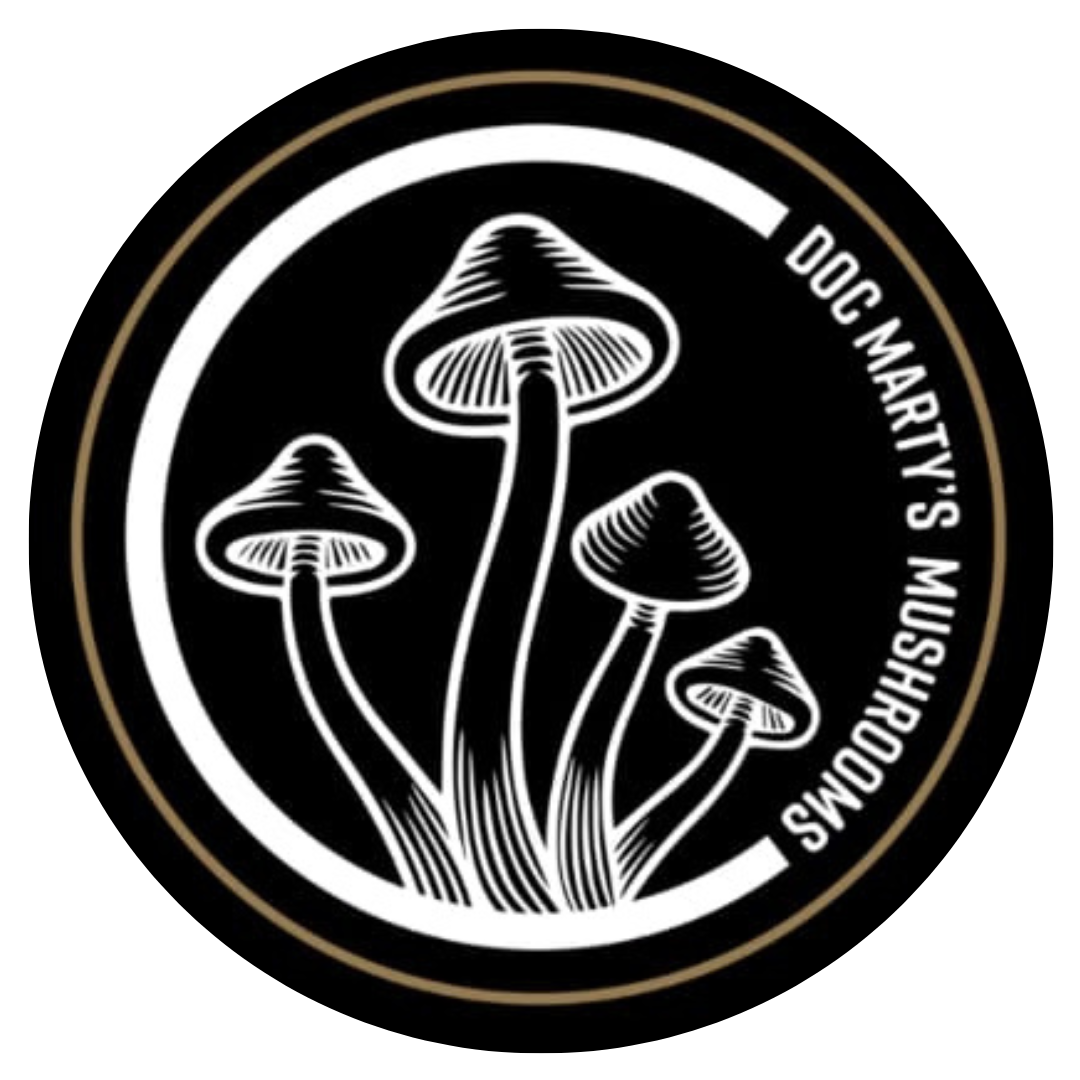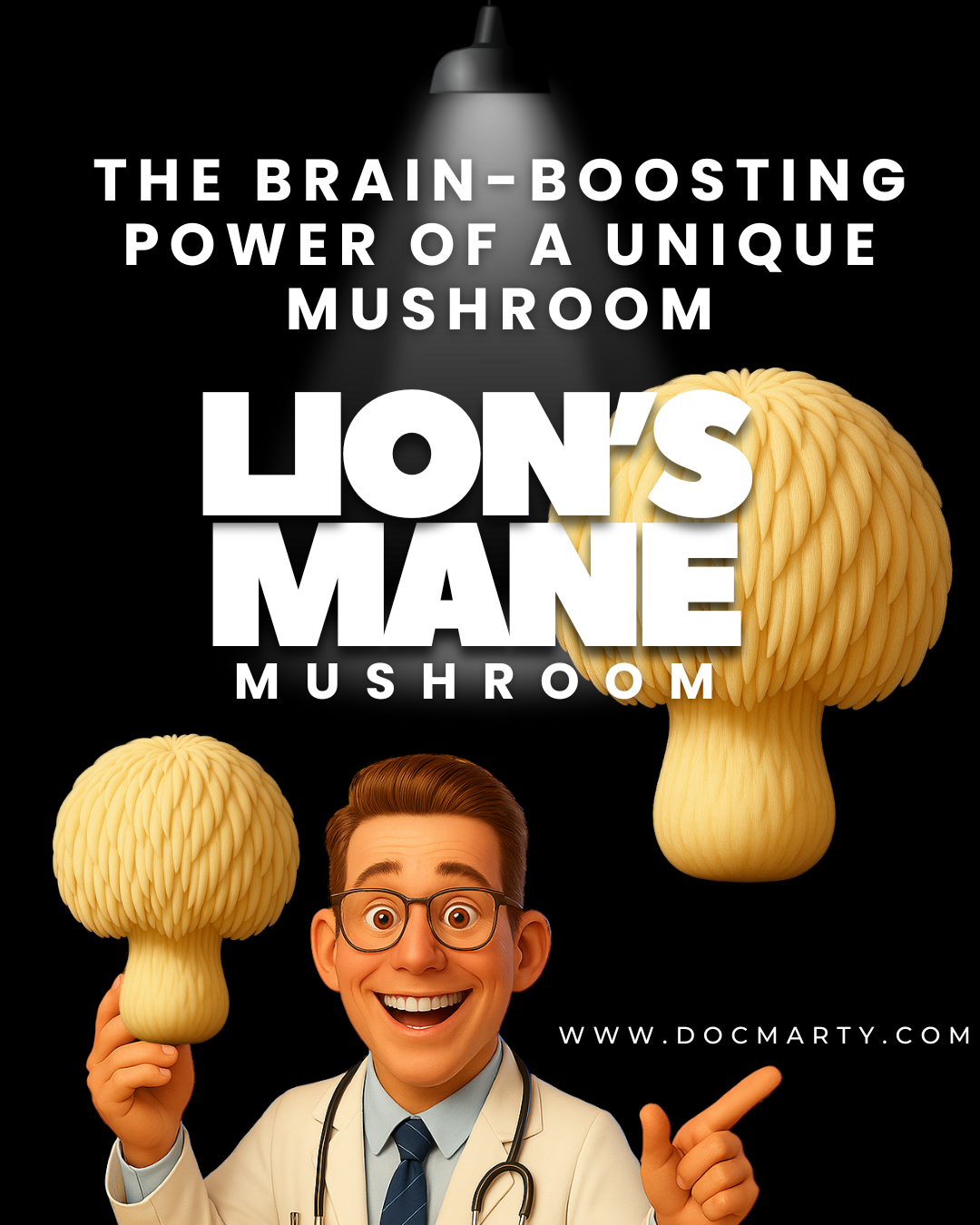The Brain-Boosting Power of a Unique Mushroom
In the quest for enhanced cognitive function, sharper focus, and sustained mental clarity, nature often holds the most profound answers. Among the fascinating organisms of the fungal kingdom, Lion's Mane mushroom (Hericium erinaceus) stands out as a remarkable natural nootropic – a substance that can help support brain health and cognitive performance. With its distinctive cascading, icicle-like spines resembling a lion's mane, this culinary and medicinal mushroom has been revered in traditional Eastern medicine for centuries, not just for its delicate flavour but for its reputed ability to nourish the mind and spirit. Today, modern science is beginning to unravel the mechanisms behind Lion's Mane's impressive cognitive benefits, making it a subject of intense interest for individuals seeking to naturally support their brainpower. This article explores the science behind Lion's Mane, its impact on focus and clarity, and how high-quality supplements can make its benefits accessible, particularly for those in South Africa looking to optimize their mental performance in a demanding world.
What is Lion's Mane Mushroom (Hericium erinaceus)?
Lion's Mane, or Hericium erinaceus, is an edible and medicinal mushroom belonging to the tooth fungus group. It's easily recognizable by its unique appearance: a large, white, shaggy mushroom that resembles a lion's mane as it grows. Unlike typical mushrooms with caps and gills, Lion's Mane features long, dangling spines. It grows on dead or dying hardwood trees, particularly oak, beech, and maple, in temperate forests across North America, Europe, and Asia.
For centuries, Lion's Mane has been a staple in traditional Chinese and Japanese medicine, valued for its wide array of health benefits. It was historically used to support overall vitality, digestive health, and, significantly, brain and nerve function. Buddhist monks were said to use Lion's Mane powder as a tea to enhance focus and concentration during meditation. Its culinary uses are also notable; when cooked, it has a seafood-like texture and flavour, often compared to crab or lobster, making it a gourmet ingredient in many dishes.
Modern scientific interest in Lion's Mane has surged as researchers have begun to identify and study its unique bioactive compounds. These compounds are believed to be responsible for its neuroprotective and cognitive-enhancing properties, distinguishing it from many other medicinal mushrooms. The primary active ingredients thought to contribute to its brain benefits are hericenones (found in the fruiting body) and erinacines (primarily found in the mycelium). These compounds are relatively unique to Hericium erinaceus and are the focus of much of the research into its effects on brain health.
The Science of Lion's Mane: How It Supports Brain Health
The excitement surrounding Lion's Mane in the scientific community stems from its potential to support brain health through several key mechanisms, primarily attributed to its unique compounds, hericenones and erinacines. These compounds are believed to stimulate the synthesis of Nerve Growth Factor (NGF), a protein crucial for the survival, maintenance, proliferation, and differentiation of neurons (nerve cells).
1. Stimulation of Nerve Growth Factor (NGF): NGF plays a vital role in neurogenesis (the creation of new neurons) and neuroplasticity (the brain's ability to reorganize itself by forming new neural connections). As we age, NGF production can decline, potentially impacting cognitive function. Hericenones and erinacines are small enough to cross the blood-brain barrier and have been shown in studies (primarily in vitro and animal models) to promote NGF production. This is a significant finding because increased NGF could potentially help protect against age-related cognitive decline and support overall brain cell health.
2. Supporting Myelination: Myelin is a fatty sheath that insulates nerve fibers, allowing for rapid and efficient transmission of nerve impulses. Damage to myelin can impair nerve communication and is implicated in various neurological conditions. Some research suggests that Lion's Mane extracts can promote the normal development of myelin and accelerate the myelination process. Healthy myelin is essential for optimal cognitive processing speed and function.
3. Reducing Inflammation and Oxidative Stress: Chronic inflammation and oxidative stress are known contributors to neurodegenerative diseases and cognitive impairment. Lion's Mane possesses antioxidant and anti-inflammatory properties. Its compounds can help neutralize harmful free radicals and modulate inflammatory pathways in the brain, thereby protecting neurons from damage and supporting a healthier brain environment.
4. Enhancing Focus, Memory, and Cognitive Function: While much of the research is still emerging and more human clinical trials are needed, existing studies and anecdotal evidence suggest that Lion's Mane may improve aspects of cognitive function. Studies in older adults with mild cognitive impairment have shown improvements in cognitive scores after supplementation with Lion's Mane. Users often report enhanced focus, improved memory recall, and greater mental clarity. For individuals in demanding roles, students, or anyone looking to maintain cognitive sharpness, these potential benefits are highly attractive. In South Africa, cognitive supplements are gaining traction as people seek natural ways to support their mental performance.
5. Potential Mood and Anxiety Support: Emerging research also points towards Lion's Mane having a positive impact on mood and anxiety. Some studies suggest it may help alleviate symptoms of depression and anxiety, possibly through its anti-inflammatory effects and its influence on neurogenesis in regions of the brain associated with mood regulation, like the hippocampus.
It's important to note that while these findings are promising, research is ongoing. However, the existing body of evidence strongly supports Lion's Mane as a powerful natural agent for brain and nerve health.
MycoBrain & MycoBrain Prime: Harnessing Lion's Mane for Optimal Cognitive Support
Understanding the powerful cognitive benefits of Lion's Mane mushroom naturally leads to the question of how best to incorporate it into one's wellness routine. Doc Marty's MycoBrain and MycoBrain Prime are meticulously formulated supplements designed to deliver the potent effects of Lion's Mane, supporting focus, clarity, and overall brain health for individuals in South Africa and beyond.
MycoBrain: Your Daily Foundation for Cognitive Enhancement MycoBrain is crafted to provide a consistent, high-quality source of Lion's Mane extract, focusing on the fruiting body which is rich in hericenones. It's designed for daily use to support ongoing cognitive function, mental clarity, and nerve health. Whether you're a professional seeking sustained focus, a student navigating demanding studies, or simply an individual proactive about maintaining brain health as you age, MycoBrain offers a natural and effective solution.
MycoBrain Prime: Advanced Support with Dual-Source Power MycoBrain Prime takes cognitive support a step further by incorporating extracts from both the Lion's Mane fruiting body (rich in hericenones) and its mycelium (a source of erinacines). This dual-source approach aims to provide a broader spectrum of Lion's Mane's unique bioactive compounds, potentially offering more comprehensive support for NGF stimulation and overall neurological well-being. MycoBrain Prime is ideal for those seeking an advanced level of cognitive enhancement or more intensive support for brain and nerve health.
Why Choose Doc Marty's MycoBrain Formulations?
- Quality Sourcing and Extraction: Doc Marty's Mushrooms prioritizes high-quality, ethically sourced Lion's Mane. Effective extraction methods are employed to ensure that the beneficial compounds are concentrated and bioavailable.
- Scientifically Informed: The formulations are based on an understanding of the scientific research behind Lion's Mane and its active constituents.
- Purity and Transparency: Products are manufactured with a commitment to purity, without unnecessary fillers or artificial ingredients. Clear labeling ensures you know what you're getting.
- Tailored for South African Needs: While beneficial globally, making these high-quality Lion's Mane supplements available in South Africa provides a valuable natural option for those seeking to enhance cognitive performance and protect long-term brain health in a local context.
Incorporating MycoBrain or MycoBrain Prime into your daily routine can be a simple yet powerful step towards unlocking your cognitive potential and supporting your brain's vitality for years to come.
Conclusion: Embrace Your Cognitive Potential with Lion's Mane
Lion's Mane mushroom is more than just a fascinating fungus; it's a testament to nature's ability to provide powerful tools for enhancing our well-being. Its scientifically supported potential to stimulate Nerve Growth Factor, protect against oxidative stress, and support overall cognitive functions like focus, memory, and clarity makes it an invaluable natural nootropic. For individuals in South Africa and around the world seeking to optimize their mental performance, manage the cognitive demands of modern life, or proactively support their brain health as they age, Lion's Mane offers a compelling, natural solution.
Products like Doc Marty's MycoBrain and MycoBrain Prime are designed to make the benefits of this remarkable mushroom accessible and effective. By choosing high-quality, well-formulated supplements, you can confidently incorporate the brain-boosting power of Lion's Mane into your daily health regimen.
As research continues to unfold, the future for Lion's Mane in the realm of cognitive health and neurological support looks exceptionally bright. Embracing this natural wonder today could be a key step in unlocking your full cognitive potential and nurturing a sharp, resilient mind for years to come.
References
(A comprehensive article would typically include a list of scientific references and studies supporting the claims made. For the purpose of this draft, specific citations will be added in the next step. Examples of search terms for finding such studies include: "Hericium erinaceus NGF," "Lion's Mane cognitive function clinical trial," "erinacines hericenones brain health.")
References
-
La Monica, M. B., Raotal, S. M., Collegato, G., Ravera, F., & Occhinegro, A. (2023). The Acute and Chronic Effects of Lion's Mane Mushroom Supplementation on Cognitive Function, Stress, and Mood in Young Adults: A Double-Blind, Parallel Groups, Pilot Study. Nutrients, 15(22), 4842. https://doi.org/10.3390/nu15224842 (Available at: https://pmc.ncbi.nlm.nih.gov/articles/PMC10675414/)
-
Li, I. C., Chang, H. H., Lin, C. H., Chen, W. P., Lu, T. H., Lee, L. Y., Chen, Y. W., Chen, Y. P., Chen, C. C., & Lin, D. P. (2020). Neurohealth Properties of Hericium erinaceus Mycelia Enriched with Erinacines. Behavioural Neurology, 2020, 3168374. https://doi.org/10.1155/2020/3168374 (Available at: https://pmc.ncbi.nlm.nih.gov/articles/PMC5987239/ - Note: This study focuses on erinacine-enriched mycelia, relevant to MycoBrain Prime)
-
Mori, K., Inatomi, S., Ouchi, K., Azumi, Y., & Tuchida, T. (2009). Improving effects of the mushroom Yamabushitake (Hericium erinaceus) on mild cognitive impairment: a double-blind placebo-controlled clinical trial. Phytotherapy research : PTR, 23(3), 367–372. https://doi.org/10.1002/ptr.2634 (A key study on mild cognitive impairment, often cited. Abstract available, full text may require purchase/subscription)
-
Chong, P. S., Fung, M. L., Wong, K. H., & Lim, L. W. (2020). Therapeutic Potential of Hericium erinaceus for Depressive Disorder. International journal of molecular sciences, 21(1), 163. https://doi.org/10.3390/ijms21010163 (Covers mood aspects and NGF)
-
Spelman, K., Sutherland, E., & Bagade, A. (2017). Neurological Activity of Lion’s Mane (Hericium erinaceus). Journal of Restorative Medicine, 6(1), 19-26. https://doi.org/10.14200/jrm.2017.6.1.19 (A review covering various neurological activities)
-
Brandalise, F., Cesaroni, V., Gregorelli, A., Gargano, M., & Ratto, D. (2017). Dietary Supplementation of Hericium erinaceus Increases Mossy Fiber-CA3 Hippocampal Neurotransmission and Recognition Memory in Wild-Type Mice. Evidence-based complementary and alternative medicine : eCAM, 2017, 3864340. https://doi.org/10.1155/2017/3864340 (Animal study showing memory improvement)

